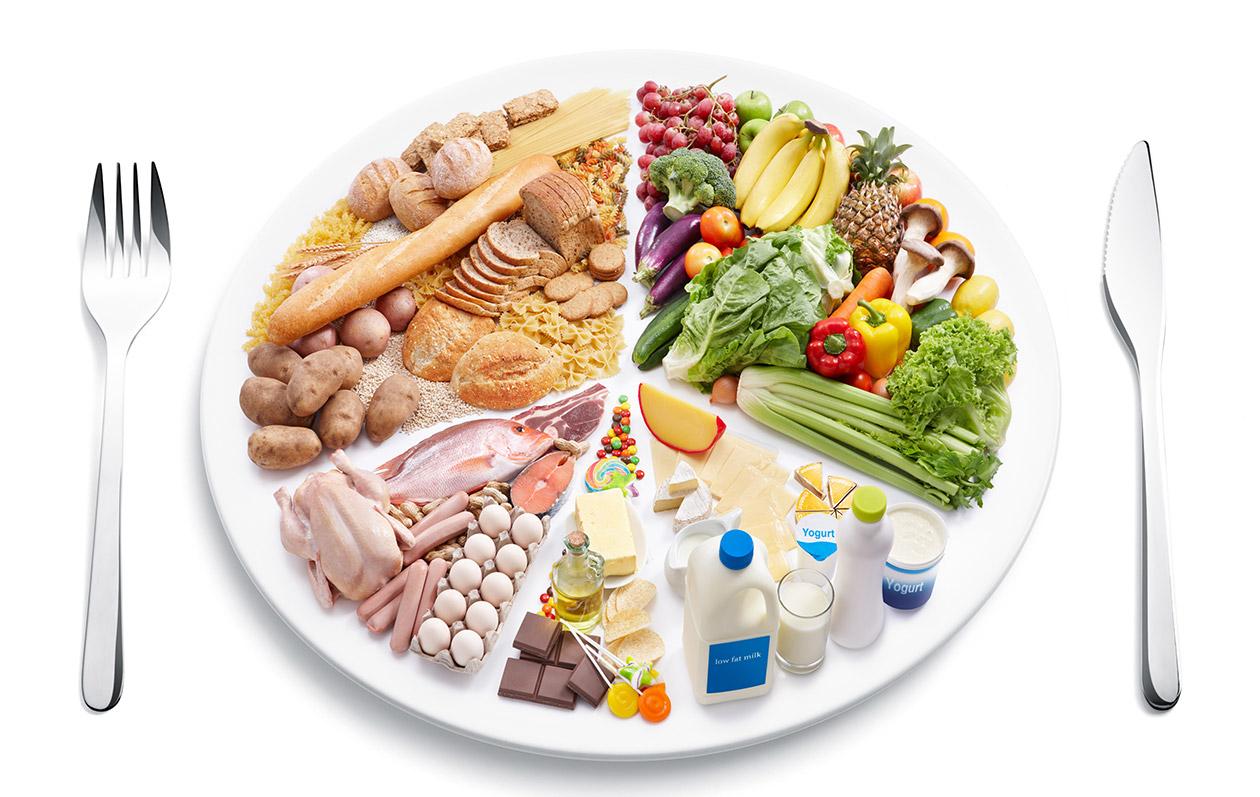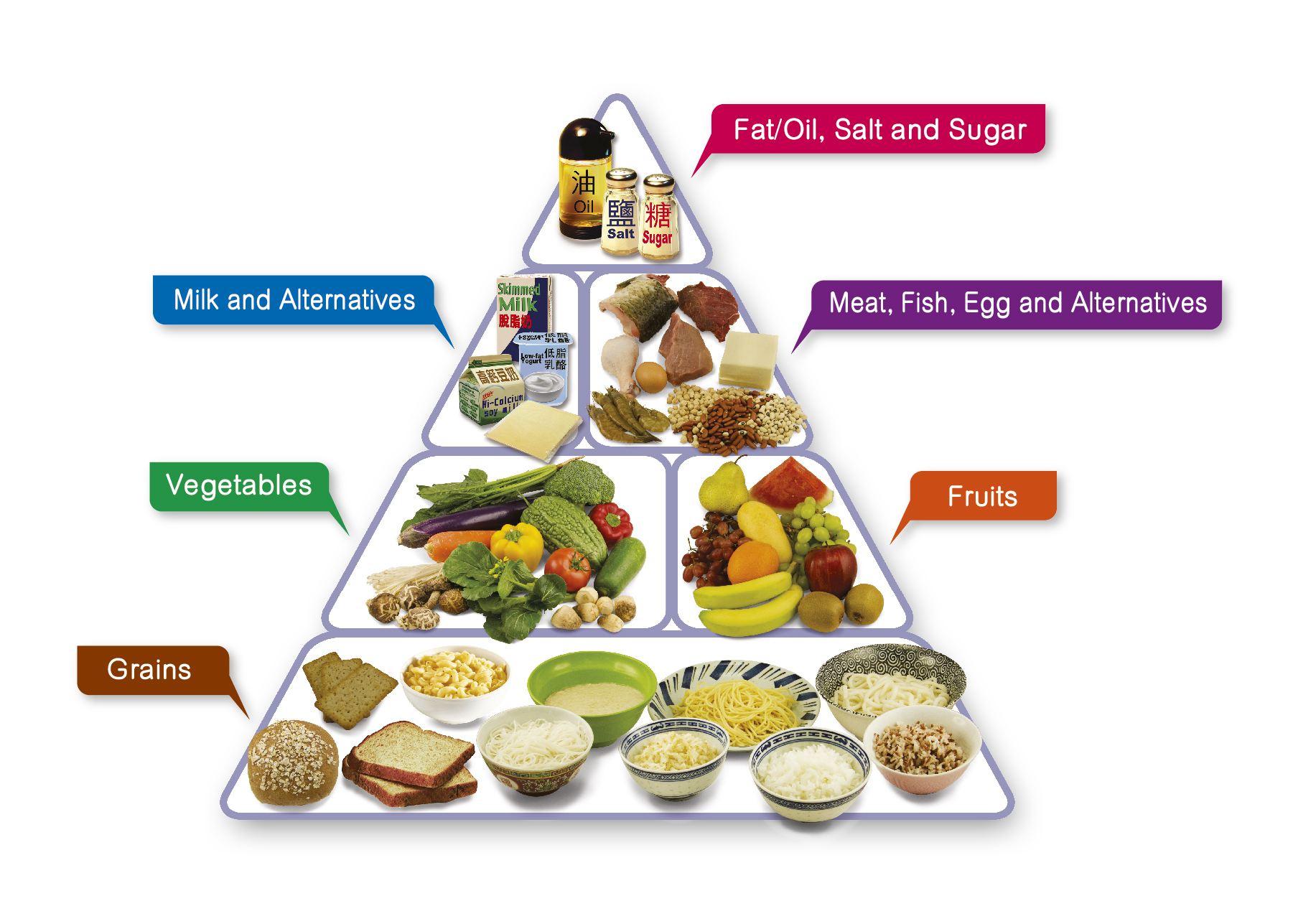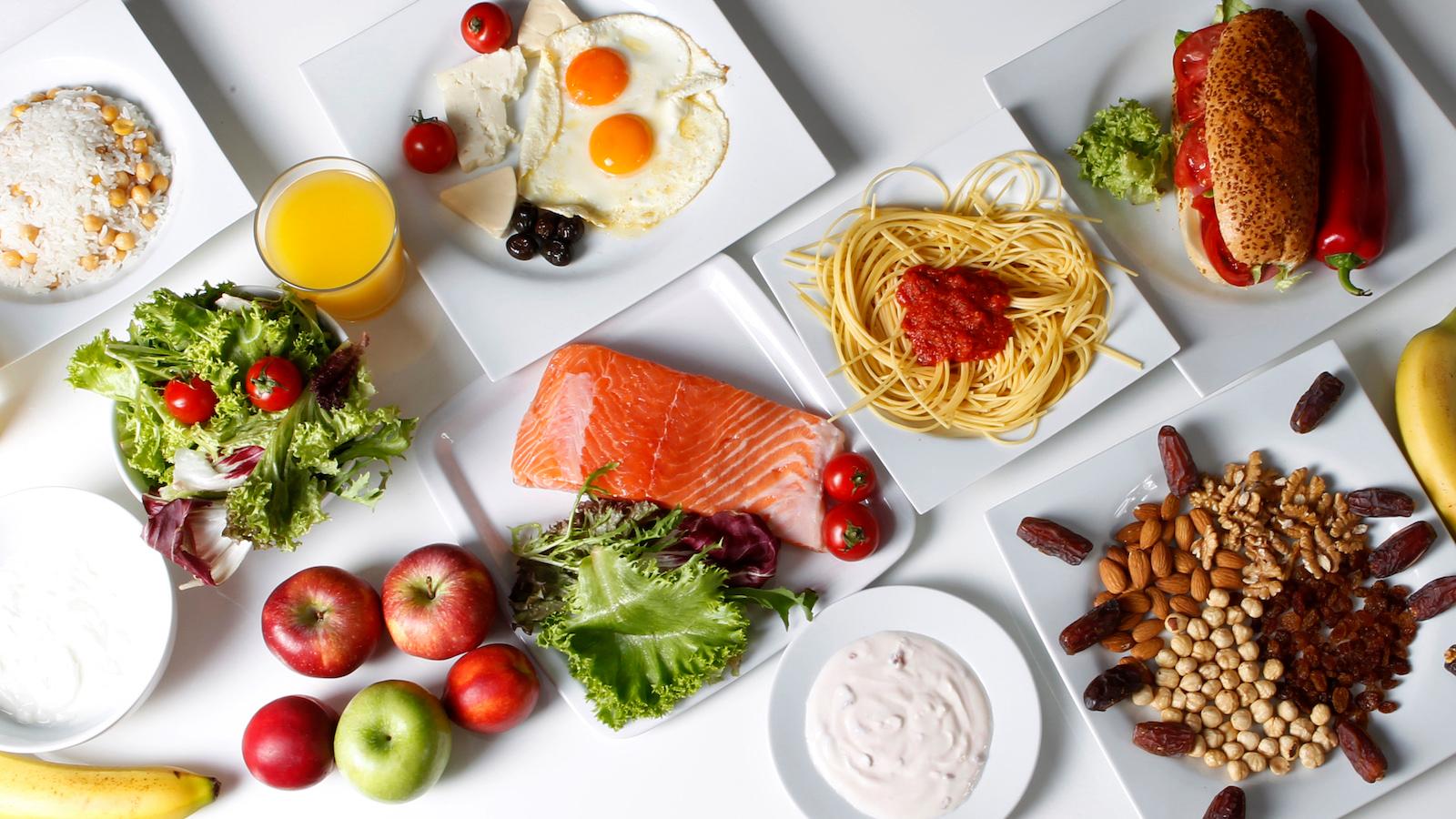We are constantly reminded about the importance of balanced diet in different contexts. Whether it is a TV commercial or a chat with a friend, you cannot be sure where balance diet food is going to pop up the next time.
So what is a balanced diet and why is it important? What are the components of a balanced diet? Is it capable of bringing a change to a person’s life or is it just another marketing myth? It’s time to figure out.
What is a balanced diet?
Let’s start our “what is a balance diet” investigation with the balanced diet definition. It is a scope of meals and rules that ensure receiving by an organism all nutrients in the right ratio. It is physiologically complete nutrition, which fulfills energy and biochemical demand of the organism.
A balanced diet plan ensures the stability of the internal milieu, supports active functioning of organs and systems, provides the ability to resist the influence of external environmental factors. To put it in simple words, a balanced diet is nutrition ethics that keeps you healthy.
Basic rules you should remember

A balanced diet is the one, where the daily ration of fats, proteins, and carbs is 1:1:4. To visualize it, imagine a plate divided into three parts. Two of them are filled with foods rich in carbs, the other two – with foods rich in fats and proteins.
A balanced diet food list should include diverse products:
- lean meat and fish;
- vegetables, lentils;
- fruits and berries;
- all kinds of nuts;
- skim milk and dairy product;
- wholegrain and rye bread;
- cereals;
- still water, all kinds of tea, freshes, smoothies.
Sticking to a balanced diet means you are to minimize alcohol consumption and smoking. You shouldn’t use too much salt or sugar during cooking. Fried and very spiced foods are allowed only once a week. Replace them by steamed, boiled, stewed, and backed foods.
It is also important to exclude all the fast food from your meals. Be careful with confectionery, pastry, fancy cakes, marinated and canned foods. Replace white and milk chocolate (especially the one with additives) by dark chocolate. Use spices moderately.
All products on your balanced diet menu should be natural, fresh, clean, and of proper quality. Storing food in a fridge for a long time destroys the majority of useful elements. The number of consumed calories should stay between 1,200 and 2,000 kcal depending on your daily activity.
Basic principles of a balanced diet
- Eat less but more frequently – up to six times a day with the meals up to 250 g.
- Chew every piece carefully, don’t be in a hurry.
- It is better to eat according to a schedule without fast snacks or missing meal time.
- Know where to stop. don’t eat too much even when the food is really tasty.
- Don’t starve, it never does any good.
- Control your water balance, drink 1.5-2 liters of water daily.
- Drink a glass of water 15-20 minutes before a meal.
- Don’t eat late at night. Save the last meals for three hours prior to sleep.
- Choose light foods for dinner – chicken, dairy, almonds, mushrooms, apples, etc.
- Consume 400 g of fruits and vegetables every day.
- Choose products rich in slow carbs and don’t forget about amino acids.
- Create a menu with diverse foods, preferably different for every day.
- Forget about smoked products, mayonnaise, and the rest of junk food.
- Start a diet diary to keep track of healthy habits and plan meals for the week.
- Consume food that together counts for as many calories as you can spend.
How to balance your diet?

The food pyramid is the best visualization of the balanced diet meaning. It consists of five sections, each representing different groups of products. This pyramid demonstrates how to make the meals diverse, stick to the right ratio, increase the number of necessary nutrients, control the number of carbs and saturated fats.
List of balanced diet products (and how to combine them)
Back to the basics, let’s freshen memory about the basic nutrition components.
- Proteins are the building material and the component that triggers biological reactions.
- Fats enrich the body with vitamins and fatty acids, which act as a lubricator for the locomotor system.
- Carbs fill the body with energy, with fuel that triggers the functioning of all the systems inside a human body.
It is important to understand how to combine different products to make them work. Below, you can see some examples of dos and don’ts.
- Vitamins come mostly from fruit and vegetables. They work effectively when consumed with magnesium, zinc, calcium, and selenium. Try to avoid caffeine, alcohol, and smoking afterward.
- Fatty acids help to digest vitamins E, C, and B and boost metabolism. Lunchtime is the optimal time for consuming. Avoid pairing them with carbs.
- Magnesium helps to prevent cardiac diseases and diabetes, especially when taken with vitamin D and calcium. Don’t mix foods rich in magnesium with sodas.
- Calcium, besides magnesium, works well with vitamins D and C, but not fibers, animal proteins, and salt.
- Proteins taste good and perform effectively with vegetables. Try not to mix them with fats and carbs.
What are the effects of a balanced diet?
When you start to figure out what is the importance of balanced diet, you will find many myths surrounding this term. The most common are that the balanced diet deprives you of tasty food, cooking requires a lot of time, and it is complicated in general.
The latter is probably the closest to the truth: adopting new habits is not the easiest task, but the balanced diet is not a torture either. It doesn’t mean that you will eat identical food every day. On the contrary, it is about gastronomic diversity and new recipes that aren’t necessarily complicated.
Speaking about the benefits of balanced diet, you shouldn’t expect an intensive weight loss. A balanced diet helps to lose excess weight gradually and to control it. Don’t treat it like dieting – rather like a new lifestyle. After it becomes your habit, the results will be visible as well.
Example of a balanced diet menu

Day 1
- Breakfast – 2 boiled eggs, 100 of oatmeals, 250 ml of orange juice.
- Snack – 200 g of fruit salad with yogurt.
- Lunch – 100 g of grilled or steamed chicken, 100 g of rice, vegetable salad.
- Snack – a fruit or 100 g of cottage cheese.
- Dinner – 200 g of steamed or stewed fish, 200 g of vegetable salad, an apple.
Day 2
- Breakfast – 100 g of cereals, 250 ml of yogurt, a banana.
- Snack – 100 g of cottage cheese, 250 ml of vegetable juice.
- Lunch – 150 g of grilled or steamed chicken, 1 boiled potato, an apple.
- Snack – 200 g of fruit salad.
- Dinner – 150 g of steamed fish, 300 g of tomato and cabbage salad.
Day 3
- Breakfast – 100 g of oatmeals, 1-egg omelet, a cup of coffee.
- Snack – 100 g of cottage cheese and a banana.
- Lunch – 200 g of steamed fish, 200 g of cucumber and tomato salad, 100 g of brown rice.
- Snack – 200 g of fruit salad seasoned with yogurt.
- Dinner – 100 g of steamed or grilled chicken, 200 g of stewed vegetables.
Day 4
- Breakfast – 100 g of oatmeals, 250 ml of milk, a grapefruit.
- Snack – any fruit and 100 g of cottage cheese.
- Lunch – 150 g of grilled or steamed chicken, 200 g of stewed cabbage.
- Snack – 250 ml of vegetable juice and 2 wholegrain buns.
- Dinner – 120 g of boiled beef and 200 g of fresh vegetable salad.
Day 5
- Breakfast – 100 g of oatmeals, 250 ml of orange juice, a banana.
- Snack – 250 ml of vegetable juice and 2 wholegrain buns.
- Lunch – 100 g of steamed or grilled chicken, 100 g of brown rice, fresh vegetable salad.
- Snack – an apple and 100 g of cottage cheese.
- Dinner – 100 g of steamed fish and tomato salad.
Day 6
- Breakfast – 100 g of oatmeals and 250 ml of milk.
- Snack – any fruit and 200 ml of yogurt.
- Lunch – 200 g of grilled fish, 100 g of couscous, 200 g of tomato salad.
- Snack – 250 ml of orange juice and a wholegrain bun.
- Dinner – 150 g of boiled shrimps and 250 g of vegetable salad.
Day 7
- Breakfast – 2-egg steamed omelet, 250 ml of orange juice.
- Snack – a banana and 100 g of yogurt.
- Lunch – 100 g of boiled beef and 200 g of vegetable mix.
- Snack – one can of yogurt and any fruit.
- Dinner – 150 g of steamed or grilled chicken, 200 g of tomato and cucumber salad.









